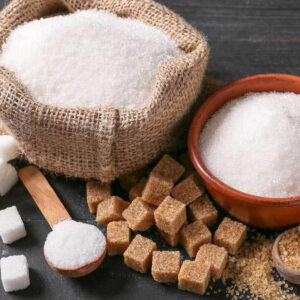Learning about beet sugar vs cane sugar can help shoppers decide which fits their lifestyle better.
Learning about beet sugar vs cane sugar can help shoppers decide which fits their lifestyle better.
Blog Article
A Detailed Look at the Conveniences and Uses of Beet Sugar Vs Cane Sugar for Sweetening Options
In the world of sweetening, both beet sugar and cane sugar offer unique benefits and culinary roles, albeit with comparable dietary profiles. While beet sugar flaunts a neutral taste perfect for various dishes, cane sugar enriches recipes with refined sugar touches.
Beginnings and Processing Techniques of Beet Sugar and Cane Sugar
Beet sugar and cane sugar, two predominant sweeteners, originate from extremely unique plants and undergo different handling approaches. Beet sugar is extracted from the sugar beet, a root veggie, mostly grown in cooler environments. The processing includes slicing the beets to draw out the juice, which is after that detoxified and taken shape right into sugar. This approach is reasonably efficient, permitting sugar healing from multiple phases of the procedure.
On the other hand, cane sugar comes from the sugarcane plant, a tropical grass. Its processing begins with collecting the cane, squashing it to obtain the juice, and then steaming this fluid to form sugar crystals.
Nutritional Comparison: Beet Sugar Versus Cane Sugar

When comparing the nutritional material of beet sugar and cane sugar, it comes to be evident that both types offer a similar energy value. Each delivers regarding 4 calories per gram, mainly as sucrose, which is a straightforward carb. This similarity encompasses their absence of essential nutrients; neither kind of sugar includes substantial quantities of vitamins or minerals. Both beet and cane sugar are 99.9% pure sucrose, making them practically similar in terms of calorie content and dietary profile.
Nevertheless, slight differences may emerge from the very little trace components that stay after processing, though these are as well small to effect general wellness. For example, cane sugar can preserve traces of molasses, relying on the level of refining, which might include minuscule quantities of calcium, iron, and potassium. Beet sugar, on the various other hand, commonly undertakes a process that eliminates these trace aspects a lot more thoroughly, resulting in an even purer kind of sucrose.
Culinary Uses and Taste Profiles
In spite of their dietary similarities, beet sugar and cane sugar split notably in their culinary applications and flavor nuances. Beet sugar, obtained from sugar beets, commonly my website has an extremely neutral preference, making it a preferred option in baking where it perfectly incorporates without altering the flavor account of other ingredients.
Chefs and home cooks alike choose sugars based upon these qualities. While both sugars work likewise in terms of sweet taste and physical residential properties, the slight taste distinction can affect the end result of a dish considerably, assisting the selection between beet and cane sugar based on the desired outcome in cooking creations.
Health And Wellness Ramifications of Consuming Beet and Cane Sugars
Although beet sugar and cane sugar are typically used interchangeably in cooking and cooking, their wellness implications can vary subtly due to their unique handling approaches. Both sugars supply regarding the very same amount of calories and carbohydrates per tsp, basically offering comparable power contributions with no innate nutritional benefits. Nevertheless, the refining procedure for each sugar can change the click here to find out more visibility of trace element and substances, although these variants are normally very little and not substantial adequate to influence one's wellness meaningfully.
The primary wellness interest in both sorts of sugar pertains to their payment to excessive calorie consumption, possibly resulting in weight gain, and affiliated illness like type 2 diabetes and cardiovascular disease when eaten in large amounts. Consequently, no matter of the source, moderation is type in consuming beet or cane sugars. Health and wellness specialists frequently suggest limiting added sugars in any kind of type to you can find out more preserve ideal health outcomes.
Ecological Effect and Sustainability of Sugar Production

Conversely, sugar beet processing has a tendency to create large amounts of pulp waste, which can be repurposed as pet feed or exchanged bioenergy, consequently reducing some environmental influences (beet sugar vs cane sugar). Eventually, the sustainability of sugar manufacturing rests on taking on even more environment-friendly farming techniques and waste management practices to lower the environmental footprint of both sugar kinds

Conclusion
In final thought, both beet and cane sugars supply valuable sweetening alternatives, each with distinct benefits and drawbacks. While they are nutritionally similar, their cultivation influences and flavor accounts vary substantially. Beet sugar is noteworthy for its sustainability and neutral taste, whereas cane sugar is valued for its abundant flavor. Consumers ought to take into consideration these elements, along with the ecological effects of sugar production, to make enlightened options concerning sugar usage that straighten with culinary demands and moral values.
Report this page